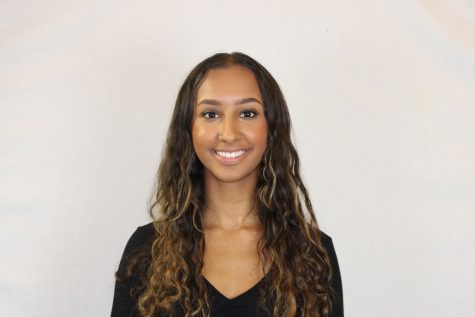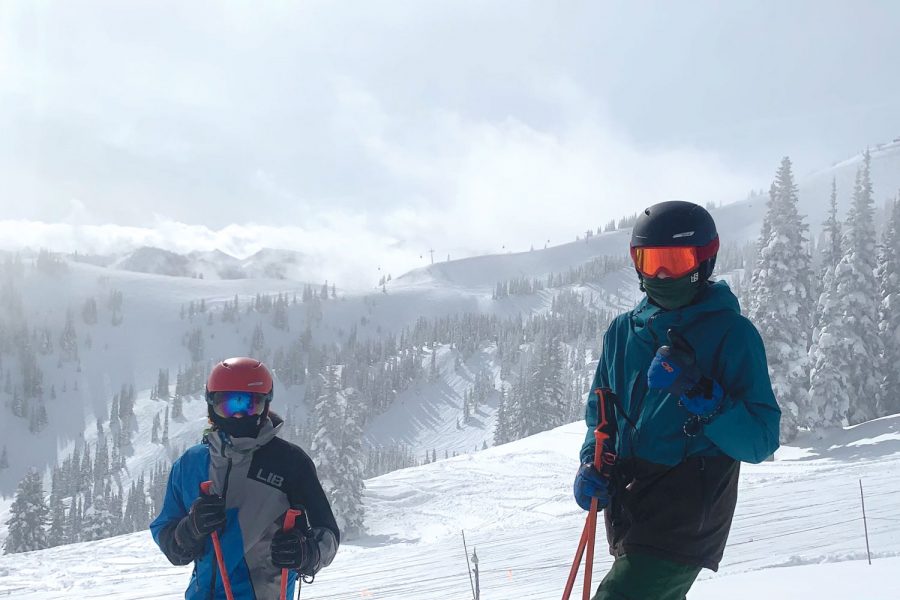Going Somewhere?
As travel becomes more frequent, UPrep takes precautions to keep the community safe
Photo: Jude Roach
Senior Jude Roach (left) traveled with his brother, sophomore Taulby Roach (right) to Mt. Bachelor in Oregon over mid-winter break. “We couldn’t do everything we wanted to but it was still a good time,” Roach said. He plans to join the ultimate team mid-season after his two-week quarantine period.
Despite increased exposure risks and quarantine guidelines, students continue to travel over school breaks.
Freshman Marina Hao visited Portland, Oregon over Mid-winter break and quarantined for the two weeks following her return.
“Right now, since I’m doing online [school], I didn’t miss out much academically. Although I do miss hanging around with my friends at school [during hybrid],” Hao said.
According to the COVID-19 Safety Plan Handbook, families are required to provide their travel information to the COVID-19 Task Force when traveling outside of the state or country.
In response to the pandemic, University Prep formed the COVID-19 Task Force, co-chaired by Director of Global Programs Brian Gonzales and Main Office Coordinator Cas Fricke.
“Families… are asked to provide information on the dates and location of travel to the COVID-19 Task Force, who will determine if the travel was to an area of high COVID-19 transmission,” the handbook states.
As of March 4th, students can choose to get tested for COVID-19, to shorten the exclusion period. If a student tests negative, they are still required to quarantine for 7 days after their return. If a student tests positive, they may not return to campus, and must report the positive test to the COVID-19 Task Force.
Students that choose not to get tested should quarantine for 10 days, and be cautious of any COVID-19 symptoms. If the student doesn’t experience any COVID-19 symptoms after the exclusion period, they may return to campus.
“As of [February 10th], there is no exclusion from campus for somebody who travels in the state of Washington. There is an exclusion as it stands for people who travel outside of the state of Washington,” Gonzales said.
After her trip, Hao consulted with the COVID-19 task-force to find an appropriate date to return to campus, and the end of her quarantine.
“I think it’s pretty reasonable because 14 days is not that long. And also, it’s a good safety measure to know if you actually got the virus or not,” Hao said.
UPrep’s mid-winter break, over the week of Presidents Day, overlapped with the beginning of the modified fall sports season.
“I was going to go to Missouri to visit my family over mid-winter break, but volleyball started when I would have come back,” sophomore Sophia Mahon said.
Mahon knew that going on this trip would mean quarantining for the 14 days following her return, following COVID-19 guidelines.
“We canceled because I wanted to be able to play volleyball this season and not miss too much,” Mahon said.
Continuing through this pandemic, guidelines are constantly changing.
“We do review [our policies] constantly,” Gonzales said. “They’re not this fixed point that we stay glued to, and we do listen and change things.”

Loobna Shego is one of the web editors-in-chief of UPrepmedia.com and she has been on staff for four years. Her favorite type of stories to write are op-eds,...

